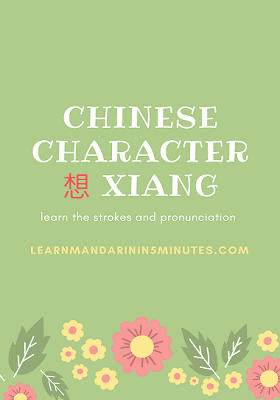Chinese Words
Knowing your Chinese words is the most important thing when learning Chinese language. If you know very few Chinese words, it is difficult to hold a proper conversation with another person. Even if you can’t hold a proper conversation in Chinese, if you know many Chinese vocabularies, you will somehow be able to roughly understand what the Chinese speaker is saying by piecing together the Chinese words you have picked up.
Master few or know many
Is it better to master 1000 Chinese words or learn 5000 Chinese words? Well, it depends on which 1000 Chinese words you are learning. If you are learning 1000 most frequently used Chinese words that have high frequency rate, you would probably be able to understand better than the person who has learned 1000 least used Chinese words. That being said, it is still better to have a longer vocabulary list than a shorter one. The more Chinese words you know, the more you can understand what you are reading and what the other person is saying.
Most used Chinese Words
The most used Chinese words we are covering for this lesson are 是 很 叫 想 在 不 谁. These Chinese words are mostly under HSK level 1. As their usage frequency is very high, it will be beneficial for you to remember them. You will hear or see these words used very frequently in daily conversation.

很 hen = (adverb of degree); quite / very / awfully
HSK Level: 1
Frequency : 94/100
Pinyin: hěn
Radical: 彳
他很高 Tā hěn gāo (He is very tall)
你们很聪明 nǐmen hěn cōng míng (You (plural) are very clever)
The Chinese word hen is a very common Chinese word with a frequency of 94. That shows how frequently this Chinese word hen is used in daily Chinese conversation.
在 = located (at) / to be (in) / to exist / in the middle of doing something (action in progress)
HSK Level: 1
Frequency : 99/100
Pinyin: zài
Radical: 土 tǔ
电脑在桌子上 Diàn nǎo zài zhuō zi shàng (The computer is on the table)
他在读书 Tā zài dú shū He is studying (action in progress)
想 = to think / to believe / to want / to miss somebody
HSK Level: 1
Frequency : 96/100
Pinyin: xiǎng
Radical: 心 xīn
我想去美国 Wǒ xiǎng qù měi guó ( I want to go to America)
你想我吗?nǐ xiǎng wǒ ma? ( Do you miss me?)
谁 (誰) = who
HSK Level: 1
Frequency : 80/100
Pinyin: shéi, shuí
Radical: 讠
你是谁? Nǐ shì shéi ?(Who are you?)
谁吃了我的蛋糕?shéi chī le wǒ de dàng āo? (Who ate my cake?)
不 bu = (negative prefix); not / no
HSK Level: 1
Frequency : 100/100
Pinyin: bù
Radical: 一 yī
不要吃 Bù yào chī (Do not eat )
不要客气 bù kè qì (Do not mention it)
Whenever you want to say no in Mandarin Chinese, just remember bu. Bu is so frequently used in daily conversation that I can't even count how many I use daily. I tend to say bu ke yi (cannot) a lot in my daily conversation with friends and family.